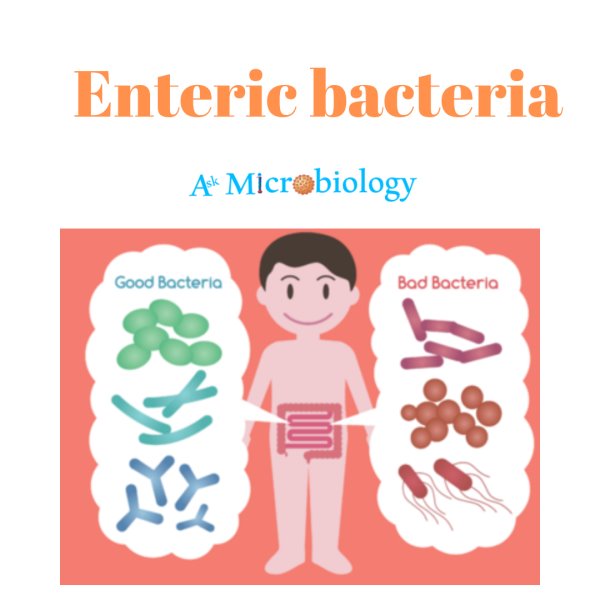Enteric bacteria are those bacteria that are present in the intestine. They belong to family Enterobacteriacea. They are gram negative rods, oxidase positive, catalase positive, non-spore former, can grow in the presence of bile salts, they are facultative anaerobes. They can either motile or non-motile. They have similar characteristics. The family enterobacteriacea includes
- Escherichia coli
- Yersinia pestis
- Hafnia
- Klebsiella
- Shigella
- Salmonella
- Proteus
- Serratia
- Citrobactor
Some of them produce pigment e.g. Serratiaproduce orange red pigment on nutrient agar. These bacteria can ferment lactose with or without gas production. These bacteria give pink color colonies on MacConkey agar. MacConkey agar contains lactose as energy source and phenol red as pH indicator. When bacteria utilize lactose, pH become acidifies and phenol red color changes to pink.
Differentiation between bacteria:
API kits
API kits are available for the differentiation of bacteria. These kits contain carbohydrate. Different bacteria ferment different type of carbohydrates. When carbohydrates ferment by the bacteria, they give an analytical profile index. This API score compared with the software that tells about the bacteria
PCR
PCR is the polymerase chain reaction that amplifies the DNA. First the DNA is isolated; with the specific primers PCR is programmed. If amplification occurs, It indicates the presence of that specific bacteria.
How to culture these bacteria:
For the culturing of enteric bacteria, take stool sample. These bacteria secretes in the feces of human. After sampling, make 10 fold dilutions with PBS and spread the dilution on MacConkey agar and nutrient agar. Incubate at 37ºC for 24 hours. After that, observe the colony pattern.
Benefits of these bacteria:
These bacteria are very important for the intestine.
- They don’t allow pathogenic bacteria to grow and produce disease.
- They can ferment complex carbohydrates and produce essential by-products.
- They may produce vitamins that are essential for our body.
- They strengthen our immune system.
Demerits of Enteric bacteria:
There are many problems with these bacteria.
- They have transferable resistant mechanism
- When long time antibiotics use, they act as opportunistic pathogen.
- When they act as opportunistic pathogen, they produce severe diseases like diarrhea, vomiting, dysentery
- Most of enteric bacteria are resistant to many antibiotics, so it is difficult to treat their disease.


Can you be more specific about the content of your article? After reading it, I still have some doubts. Hope you can help me.
Your point of view caught my eye and was very interesting. Thanks. I have a question for you.
Thanks for sharing. I read many of your blog posts, cool, your blog is very good.
Thank you for your sharing. I am worried that I lack creative ideas. It is your article that makes me full of hope. Thank you. But, I have a question, can you help me?
Can you be more specific about the content of your article? After reading it, I still have some doubts. Hope you can help me.
Your point of view caught my eye and was very interesting. Thanks. I have a question for you.
Your article helped me a lot, is there any more related content? Thanks!
Reading your article helped me a lot and I agree with you. But I still have some doubts, can you clarify for me? I’ll keep an eye out for your answers.
Your point of view caught my eye and was very interesting. Thanks. I have a question for you. https://accounts.binance.com/bn/register?ref=WTOZ531Y